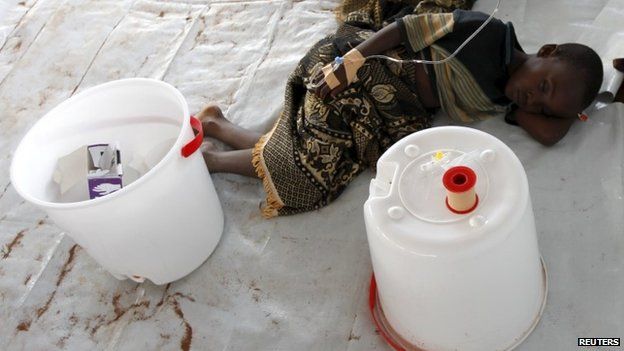Cholera outbreak hits 3,000 Burundi refugees - UN
- Published

Cholera has infected about 3,000 people in Tanzania, the UN has said, where many Burundians have fled seeking refuge from their country's unrest.
Up to 400 new cases are being seen each day, the UN's refugee agency said.
Over 100,000 have left Burundi in recent weeks, escaping violence sparked by President Pierre Nkurunziza's decision to run for a third term.
In the latest unrest, at least two people were killed in a grenade attack in the capital Bujumbura.
"Those who did this had the intention to kill, because the grenades were thrown among women selling fruits, in a big crowd," General Godefroid Bizimana, a deputy police chief, told the AFP news agency.
There were fresh protests in Bujumbura on Friday against Mr Nkurunziza's bid to extend his rule, a move critics say is unconstitutional.
A UN spokesman called the cholera outbreak a "new, worrying, and growing additional complication".
The epidemic has killed 31 people - two locals and 29 Burundian refugees, the UN's statement said.
Cholera is a highly contagious disease, causing severe diarrhoea and vomiting, and is caught from contaminated water.
The UN described the cramped, dirty conditions in Tanzania's lakeside Kagunga area, where many of the migrants are staying, as "dire".
It is trying to evacuate refugees from the region but warns the situation may get worse before it gets better.
The refugee agency predicts that the number of people fleeing Burundi could double in the next six months.
- Published22 May 2015
- Published14 October 2015
- Published15 May 2015
- Published31 July 2023